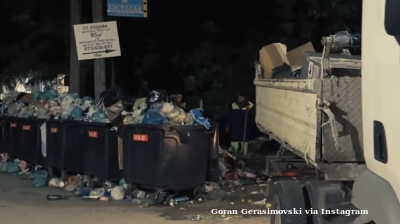Iran's government has mandated the temporary shutdown of industrial towns nationwide as the country grapples with severe electricity shortages, according to a report by ILNA on December 16.
Working-class Iranians already under stress due to inflationary pressure on everyday food items will likely face further delays in payments as cash flow is squeezed further.
The closures, confirmed by Mohsen Naqashi, Secretary of the Federation of Food and Agriculture Organisations, require factories in industrial towns to cease operations until the end of the week (December 20).
Naqashi reluctantly described the directive as a response to ongoing power outages that have disrupted production and left industries in a precarious state.
Naqashi said that these closures will significantly impact production units and result in widespread job losses, adding that many businesses are already struggling with raw material shortages and heavy government bureaucracy. Factory owners have resorted to desperate measures to sustain operations.
Naqashi reported that some managers have sold personal assets to meet payroll obligations while others face mounting costs tied to insurance and taxes.
He added that the lack of government financial support has compounded the situation.
Smaller factories with about 50 workers must cover monthly payrolls of roughly IRR15bn ($19,607), while larger facilities with 2,000 employees face costs exceeding IRR300bn ($392,156).
With production suspended and sales dwindling, many businesses are on the brink of closure.
The ongoing economic challenges have been exacerbated by a sharp rise in the dollar exchange rate, now above IRR760,000, which has inflated the cost of raw materials and driven up production expenses.
Iran’s industrial sector has struggled with energy shortages for years, but officials have yet to devise a long-term solution to ensure stable electricity supplies.
Temporary measures such as burning mazut and declaring mandatory shutdowns have failed to alleviate the crisis.
As part of a national push to reduce consumption across the board, President Masoud Pezeshkian's administration has launched a "two degrees less" campaign, urging citizens to lower their thermostats. Government ministers have taken to social media, sharing photos of their unheated, unlit offices to demonstrate compliance.
"We apologise for conditions where people have to be somewhat conforming," Pezeshkian said at an event in Tehran on Saturday, promising to prevent similar situations next year. "We will either find or make a way to ensure our people don't face such problems."
Iranian industry is primarily powered by the country's bountiful gas supplies, but a lack of investment and historically low prices have led people to overuse both electricity, gas and gasoline.
Energy expert Hossein Mirafzali has recently told Shargh newspaper that Iran has the world’s most extensive gas pipelines, but the country still doesn't have enough supply.
“Of the 1.5mn kilometres of gas pipelines on the planet (excluding international lines), a significant portion caters to industries and power plants. However, in Iran alone, 430,000 kilometres of gas pipelines supply homes in cities and villages,” he says.
Mirafzali said that 95% of Iranian households are now connected to the national gas grid. “This is even though residential gas consumption is primarily limited to heating, which governments in Iran could have provided through electricity instead of spending exorbitantly on gas pipelines.”
According to the expert, building such a vast gas transmission network has amounted to $30bn.
Iran’s Oil Ministry officials estimate that addressing the gas shortfall and developing the necessary infrastructure would require an annual investment of $13bn over the next eight years — a figure that appears unfeasible given the economic constraints imposed by US sanctions.
bneGREEN

TEHRAN BLOG: 200 days without rain
Tehran's water crisis is about decades of chaotic urban expansion, unregulated groundwater extraction, and infrastructure so decrepit that hundreds of millions of cubic metres vanish before reaching a single tap.

The Arctic and Antarctica record "off the charts" heat as polar warming accelerates
Parts of both the Arctic and Antarctic have experienced historically high temperatures in recent weeks, with weather stations in East Antarctica recording record-breaking warmth for the month of October, alarming climate scientists.

Giant glacier chunk breaks away in Tajikistan, mountain villages put on alert
Situation serves as reminder that climate crisis threatens to wreak havoc in Central Asian country.

Singapore’s green pivot – headline grabbing but still limited
Forays into offshore wind via regional cooperation with neighbours, and forward-looking bets on hydrogen and low-carbon fuels are making headlines, but the scale required to wean a heavily gas-dependent system off fossil fuels is still daunting.



